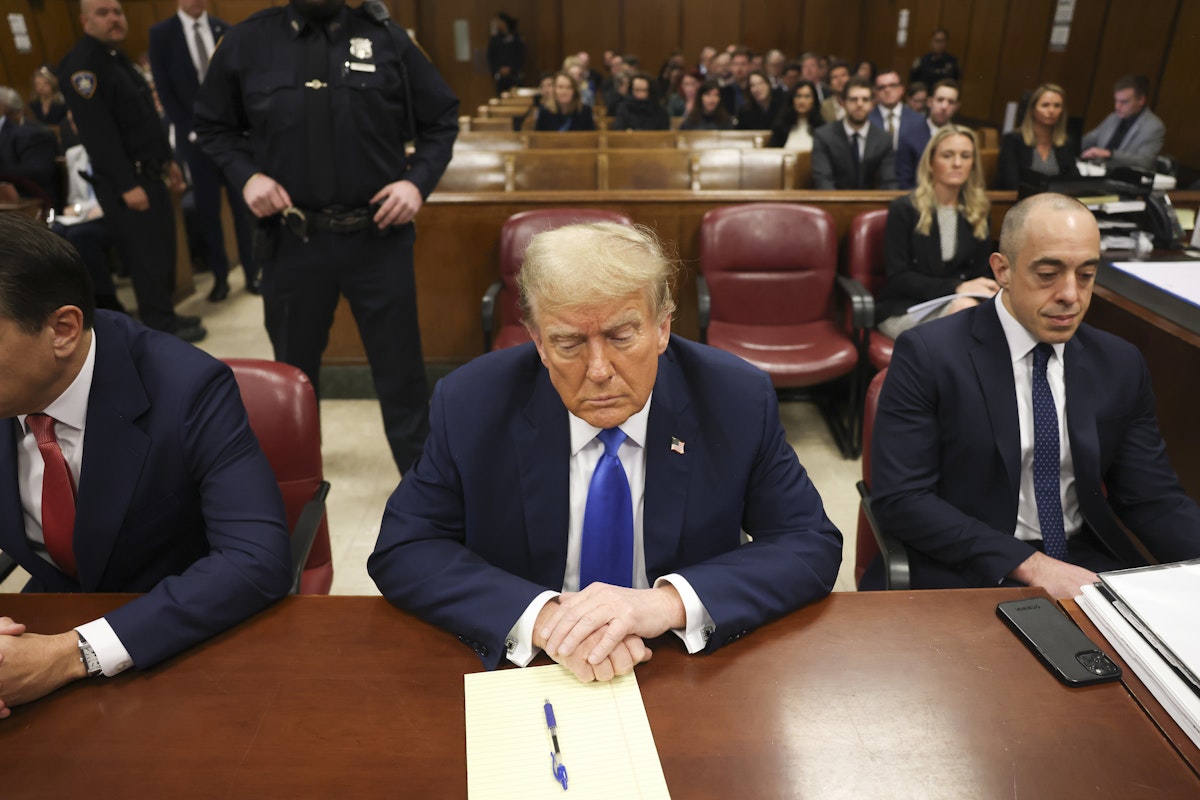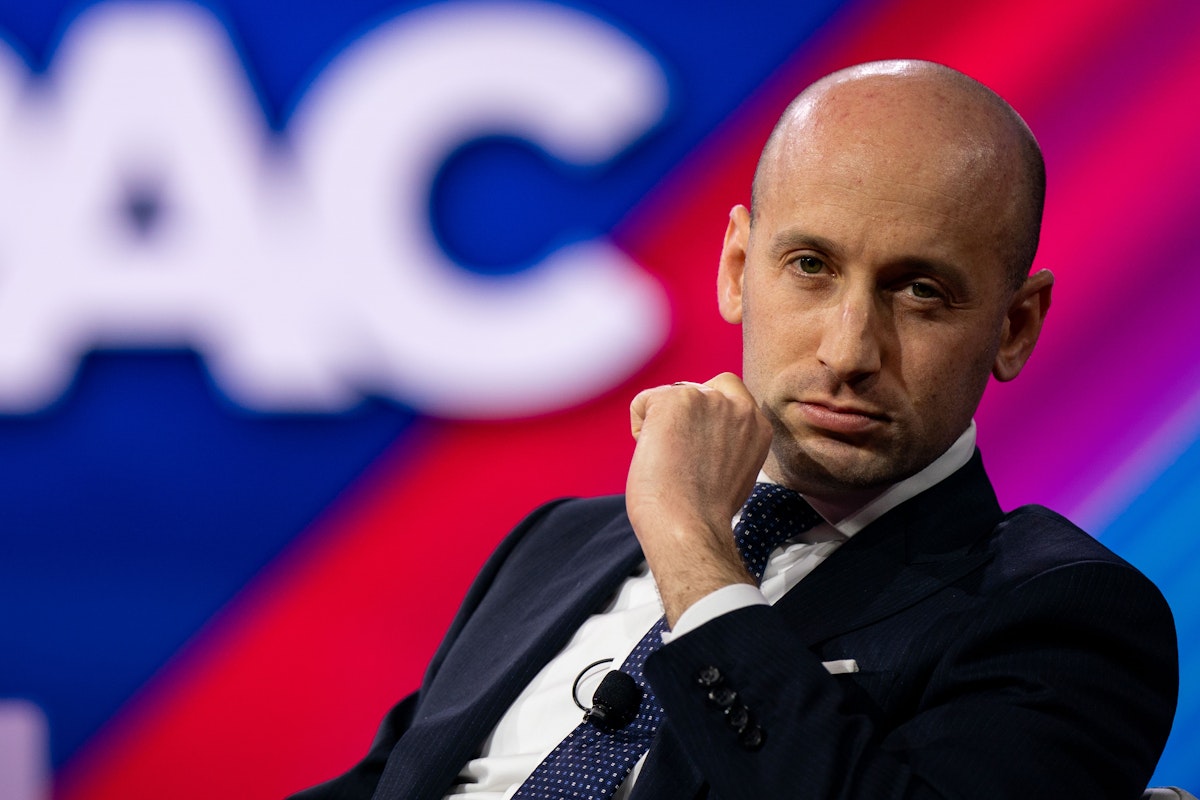Trump Is Livid He Has to Obey the Law in Hush-Money Trial
Donald Trump is still furious that he has to follow the same rules in his New York hush-money trial as every other U.S citizen—mainly, that he actually has to attend the proceedings.The GOP presidential nominee lashed out Wednesday at the judge presiding over the case, claiming that Judge Juan Merchan believes he is “above the Supreme Court” after Merchan decided Trump would not be allowed to take a day off from his trial to make a guest appearance at a Supreme Court hearing discussing another one of his legal woes.“Because he thinks he is above the Supreme Court, he is prohibiting me from going to the presidential immunity hearing where some of the great legal scholars will be arguing the case—the most important case in many years on the Supreme Court,” Trump told Fox News Digital. “Without presidential immunity, the presidency becomes a ceremonial position only, it will be decimated,” he claimed. “He’s prohibiting me from going. He is a radical left Democrat.”Of course, Trump’s perspective on the significance of the immunity hearings—which will singularly determine whether his January 6-related D.C. trial will be allowed to move forward—is a bit biased.If the nation’s highest court rules in Trump’s favor, then he would not only avoid accountability for his involvement in the January 6 riot, but he’d also be liberated to do practically whatever he wants without fear of consequence in a potential second presidential term. As Greg Sargent wrote for The New Republic, “if he wins on this front, he’d be largely unshackled in a second presidential term, free to pursue all manner of corrupt designs with little fear of legal consequences after leaving office again.”Trump had asked last week to attend the Supreme Court arguments, but Merchan rejected the request, noting that while a Supreme Court argument is a big deal, the former president’s first criminal trial in New York was “also a big deal.”An opinion on Trump’s presidential immunity claim is expected by late June.The weeks-long hush-money trial, which hinges on whether Trump used his former fixer Michael Cohen to sweep an affair with adult film actress Stormy Daniels under the rug ahead of the 2016 presidential election, will require Trump to be in court for every session—something Trump himself has repeatedly challenged in an effort to get away from the New York courthouse. In past weeks, Trump has accused the state law requiring him to remain in New York as “election interference” on the basis that it will keep him away from the campaign trail, even though he is still permitted to campaign throughout every weekend, evening, and Wednesday during the process. If Trump fails to appear in court, he could face an arrest warrant.

Donald Trump is still furious that he has to follow the same rules in his New York hush-money trial as every other U.S citizen—mainly, that he actually has to attend the proceedings.
The GOP presidential nominee lashed out Wednesday at the judge presiding over the case, claiming that Judge Juan Merchan believes he is “above the Supreme Court” after Merchan decided Trump would not be allowed to take a day off from his trial to make a guest appearance at a Supreme Court hearing discussing another one of his legal woes.
“Because he thinks he is above the Supreme Court, he is prohibiting me from going to the presidential immunity hearing where some of the great legal scholars will be arguing the case—the most important case in many years on the Supreme Court,” Trump told Fox News Digital.
“Without presidential immunity, the presidency becomes a ceremonial position only, it will be decimated,” he claimed. “He’s prohibiting me from going. He is a radical left Democrat.”
Of course, Trump’s perspective on the significance of the immunity hearings—which will singularly determine whether his January 6-related D.C. trial will be allowed to move forward—is a bit biased.
If the nation’s highest court rules in Trump’s favor, then he would not only avoid accountability for his involvement in the January 6 riot, but he’d also be liberated to do practically whatever he wants without fear of consequence in a potential second presidential term. As Greg Sargent wrote for The New Republic, “if he wins on this front, he’d be largely unshackled in a second presidential term, free to pursue all manner of corrupt designs with little fear of legal consequences after leaving office again.”
Trump had asked last week to attend the Supreme Court arguments, but Merchan rejected the request, noting that while a Supreme Court argument is a big deal, the former president’s first criminal trial in New York was “also a big deal.”
An opinion on Trump’s presidential immunity claim is expected by late June.
The weeks-long hush-money trial, which hinges on whether Trump used his former fixer Michael Cohen to sweep an affair with adult film actress Stormy Daniels under the rug ahead of the 2016 presidential election, will require Trump to be in court for every session—something Trump himself has repeatedly challenged in an effort to get away from the New York courthouse.
In past weeks, Trump has accused the state law requiring him to remain in New York as “election interference” on the basis that it will keep him away from the campaign trail, even though he is still permitted to campaign throughout every weekend, evening, and Wednesday during the process. If Trump fails to appear in court, he could face an arrest warrant.


